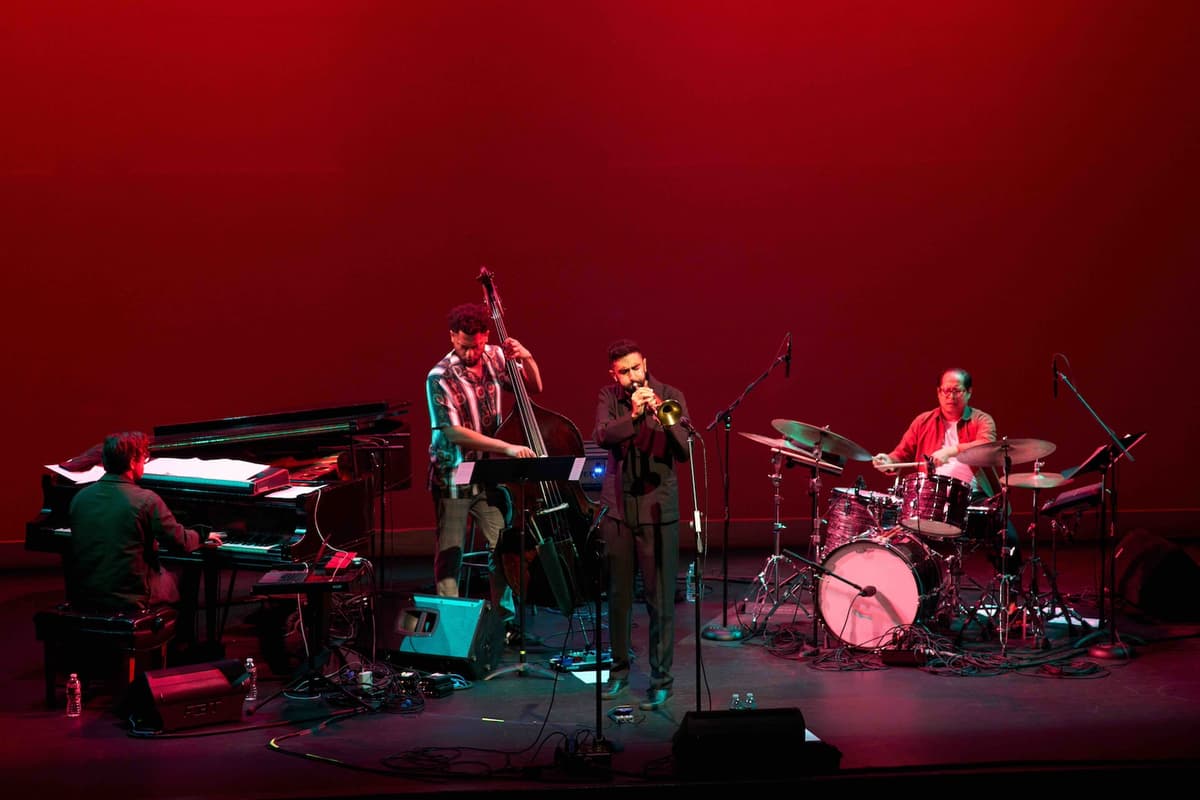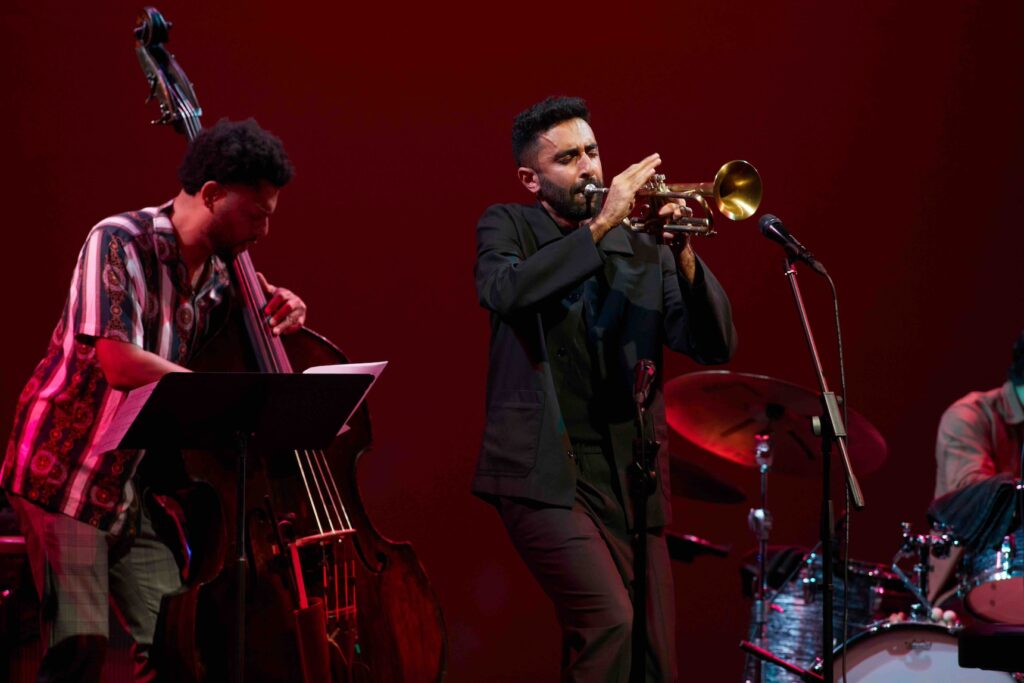Even the Silences Have Character on Trumpeter Riley Mulherkar’s Solo Debut
The nine selections on the composer and bandleader’s ‘Riley,’ in addition to being brilliantly composed and performed, are thoughtfully ‘sound-designed,’ if that’s the right term.

Riley Mulherkar
‘Riley’
Westerlies Music
Officially the first solo album by trumpeter, composer, and bandleader Riley Mulherkar, “Riley” includes a credit I’ve never previously seen on an album of acoustic jazz: Both pianist Chris Pattishall and engineer Rafiq Bhatia are listed as having done “programming” and “sound design.”
Considering this is an album of trumpet (Mr. Mulherkar), piano (Mr. Pattishall), bass (Russell Hall), and drums (Kyle Poole), one wonders exactly what sounds the two were designing and programming.
At 33, Mr. Mulherkar has already made himself a major presence in the contemporary jazz world and played on dozens of albums, including by a cutting-edge brass ensemble, the Westerlies, who among other things have collaborated meaningfully with the patron saint of envelope-pushing jazz trumpet, Dave Douglas.
The first track, “Chicken Coop Blues,” makes the point that the nine selections, in addition to being brilliantly composed and performed, are thoughtfully “sound-designed,” if that’s the right term. This opening number features Mr. Mulherkar playing his trumpet with no accompaniment other than the steady pounding of his right foot. Yet, now that I’m conscious of the input of Messrs. Pattishall and Bhatia, somehow it doesn’t sound quite like ordinary empty space surrounding Mr. Mulherkar’s trumpet: It’s more like a deliberately spare background in which someone is playing, or at least manipulating, the silence.

I had the chance to hear Messrs. Mulherkar and Pattishall play most of this music live a few days ago as part of the 2024 Hudson Jazz Festival. This was in Hudson Hall, a venue built in 1855 that is said to be the oldest surviving theater in all of New York, and one that certainly has formidable natural acoustics.
There was a different rhythm section at the festival, with bassist Barry Stephenson and drummer Chris Icasiano, though the program essentially mirrored the CD. The leader also opened here with “Chicken Coop Blues.” Performed live, the space around the horn and the stomping foot seemed more like actual, natural silence.
On “Ride or Die,” “Looking Out,” and “Looking Up,” the trumpet, piano, and other instruments — as well as the silences — seem programmed as well as played. The piano sounds more orchestral, and the solo trumpet sounds like a whole section; it’s actually similar to a sound that Herb Alpert gets on some of his own more recent recordings. In “Hopscotch,” both live and on the album, the trumpet and the piano take the inspiration of the title literally and seem to be leaping around each other in a highly staccato fashion.
The two “looking” pieces are especially spare — here the silences even have more of a presence; in fact, they sometimes seem to be more about the spaces than the music. It’s like the music is filling in the gaps between the silences, rather than the other way around.
The album also has several interpretations of jazz standards, a list that includes “Chicken Coop,” which is essentially a variation on the basic 12-bar blues. Both “King Porter Stomp” and “Stardust” come out of the early history of jazz trumpet.
The first was composed by a pianist, Jelly Roll Morton, and was popularized by a clarinetist, Benny Goodman, but its signature sound is the opening trumpet solo. Messrs. Mulherkar and Pattishall begin with the piece’s familiar introduction before getting into that iconic trumpet part, and the background behind it is a combination of a standard rhythm section and an electronic soundscape.
Hoagy Carmichael was influenced by both Bix Beiderbecke and Louis Armstrong, and the latter gave us one of the all-time great versions of his iconic “Stardust.” As performed at the concert, Mr. Mulherkar plays the melody straightforwardly but emotionally, with plenty of feeling, with an equally direct piano accompaniment.
At Hudson Hall, the quartet performed several works by the late Ron Miles, one of the leader’s inspirations and mentors, but on the album there’s one number not heard at the festival: “No More,” an adaptation of a folkloric spiritual song captured by an Alan Lomax field recording, and sung movingly by an always welcome South African baritone, Vuyo Sotashe.
Then, too, Mr. Mulherkar does some amazing singing of his own — through the horn, I mean — on the last track, “Here Comes The Honey Man.” Most millennial musicians know Gershwin’s “Porgy and Bess” score from the Miles Davis-Gil Evans interpretation, which brought out the inherent modality of both “Honey Man” and “I Loves You Porgy.”
“Honey Man” is especially perfect for a treatment that goes beyond conventional Western tonality; it’s less an actual song than a five-note street chant that Mr. Mulherkar plays over and over while the backdrop changes around him. The accompaniment at first is nonexistent but gradually gets louder and louder and ever more chaotic until it recedes away — as to convey that the honey man has been here and gone.
It’s a positive sign, though, that Riley Mulherkar, unlike the honey man, is going to be sticking around for a while.

